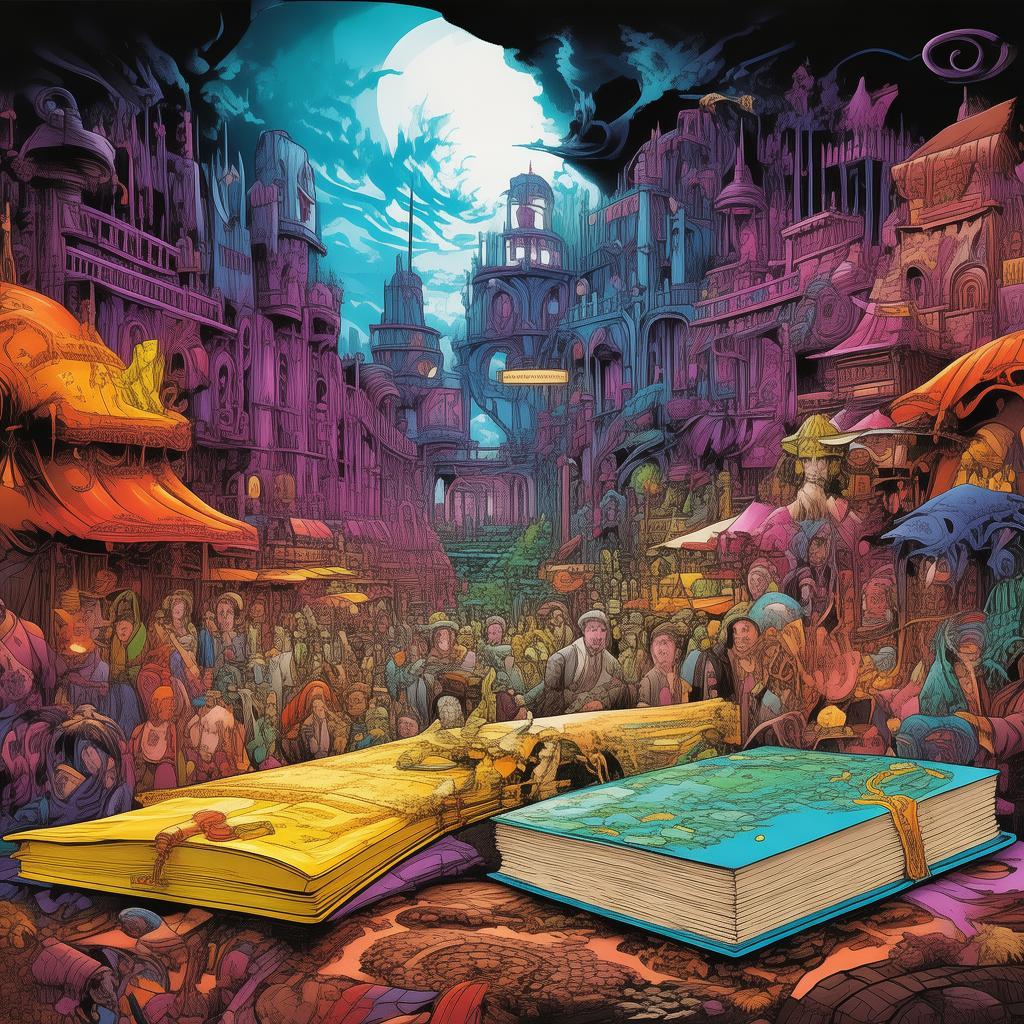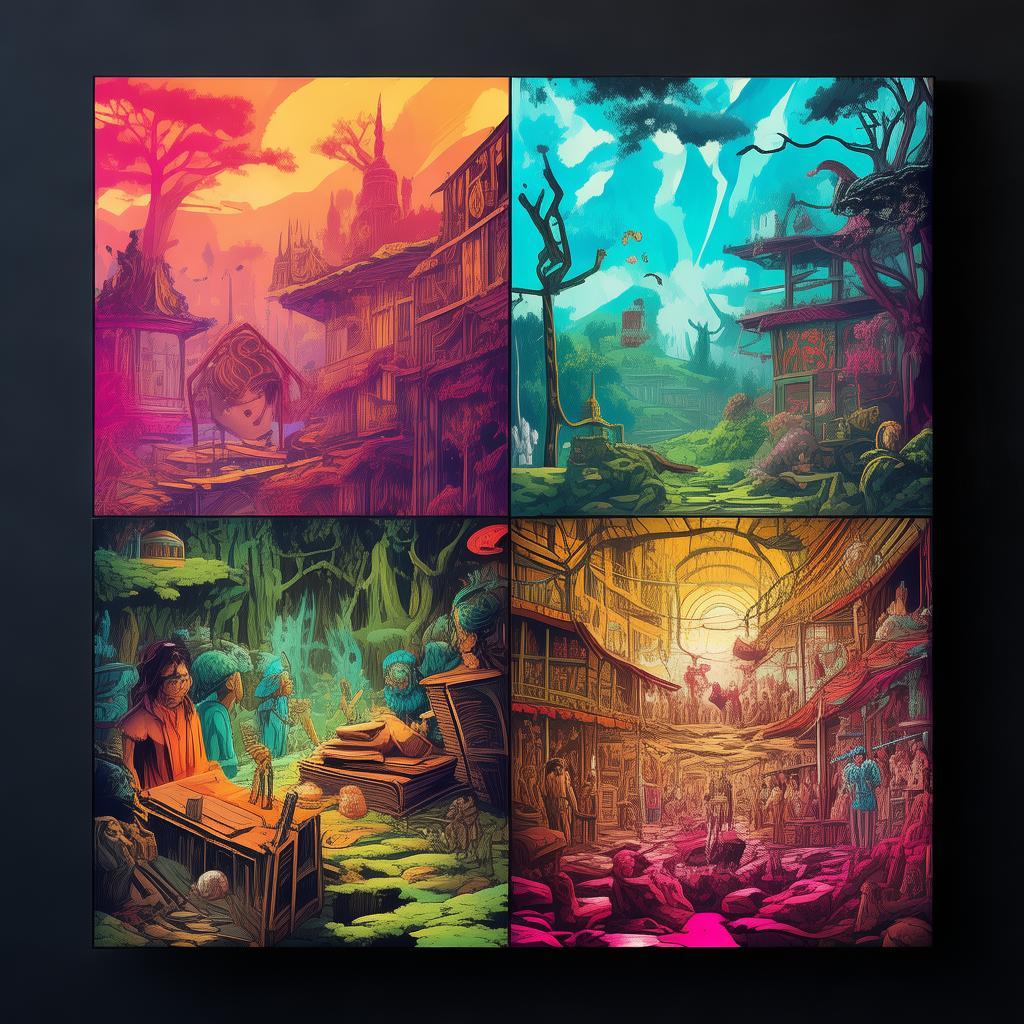Whispers of the Past: The Cinnamon Conundrum
The sun peeked through the slatted blinds, casting a warm glow on the worn wooden floor of Auntie's Kitchen. The air was thick with the scent of freshly baked bread and the faint hint of cinnamon, a scent that had woven itself into the very fabric of the small, cozy space. Here, in the heart of a bustling city, was a sanctuary of comfort and nostalgia, a place where memories were as abundant as the spices on the shelves.
Mia, a young woman in her late twenties, pushed open the creaky door and stepped inside. She had always felt a sense of belonging in this kitchen, even though she had been born and raised in a different city. The kitchen was her grandmother's, and it was here that Mia had spent countless afternoons, learning the art of baking and the stories that accompanied each dish.
Today, Mia's visit was different. She had come to retrieve a jar of cinnamon from the top shelf, a jar that had been there for as long as she could remember. It was an old, dusty jar, its label long faded, but the scent that wafted from it was unmistakable.
As she reached for the jar, her fingers brushed against something unexpected—a piece of paper tucked between the cinnamon sticks. Her heart raced as she pulled it out and unfolded it. It was a letter, yellowed with age, addressed to her grandmother from her great-grandmother. The letter spoke of a family secret, a secret that had been kept hidden for generations.
Mia's curiosity was piqued. She read the letter, her eyes wide with shock and disbelief. It revealed that her grandmother's family had once owned a vast cinnamon plantation in the Philippines, a plantation that had been lost during the war. The cinnamon was a remnant of a life that had been shattered, a life that had been rebuilt in the shadows of what had been lost.

Determined to uncover the truth, Mia began her quest. She traveled to the Philippines, following the trail her grandmother had left behind. She visited the old plantation, now overgrown with vines and forgotten by time. The air was thick with the scent of cinnamon, and Mia felt a strange connection to her ancestors, as if their spirits were guiding her.
As she delved deeper into the past, Mia discovered that the cinnamon was more than just a spice; it was a symbol of resilience and hope. Her great-grandmother had used the cinnamon to keep her family together during the darkest times, a reminder of the strength that lay within them.
In the Philippines, Mia met an old woman who had worked on the plantation as a child. She told Mia stories of the plantation's heyday, of the vibrant community that had thrived there, and of the tragedy that had struck it down. The woman showed Mia the old cinnamon mill, its gears rusted and silent, a testament to a time that could never be reclaimed.
Mia's journey brought her back to Auntie's Kitchen, where she found her grandmother waiting for her. The two women shared the truth, and Mia realized that the cinnamon was more than just a family relic; it was a bridge between generations, a connection to the past that could not be broken.
Together, they decided to open a cinnamon shop, a place where people could come and experience the flavors of the past. The shop became a gathering place for stories, a place where memories were shared and cherished.
As the years passed, Mia's cinnamon shop became famous, not just for its delicious treats but for the stories that accompanied them. The cinnamon, once a symbol of loss, had become a symbol of hope and unity.
In the end, Mia learned that the true recipe for life's sweetest memories was not just the ingredients that went into a dish, but the love, hope, and resilience that were baked into every story. And in Auntie's Kitchen, those stories would live on, forever sweetening the lives of those who passed through its doors.
✨ Original Statement ✨
All articles published on this website (including but not limited to text, images, videos, and other content) are original or authorized for reposting and are protected by relevant laws. Without the explicit written permission of this website, no individual or organization may copy, modify, repost, or use the content for commercial purposes.
If you need to quote or cooperate, please contact this site for authorization. We reserve the right to pursue legal responsibility for any unauthorized use.
Hereby declared.









